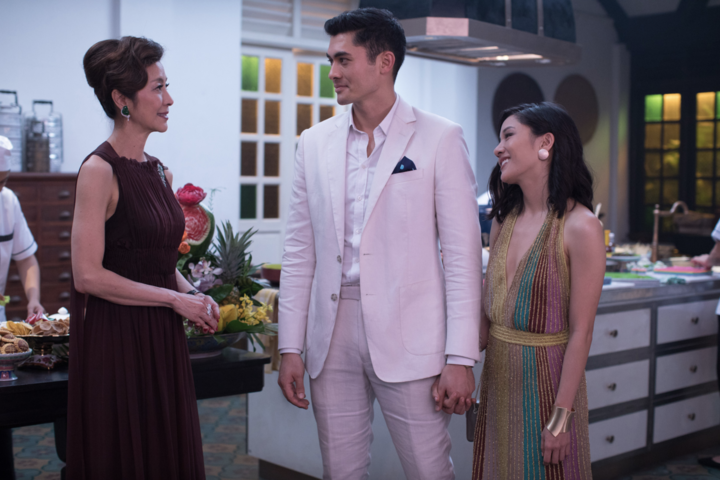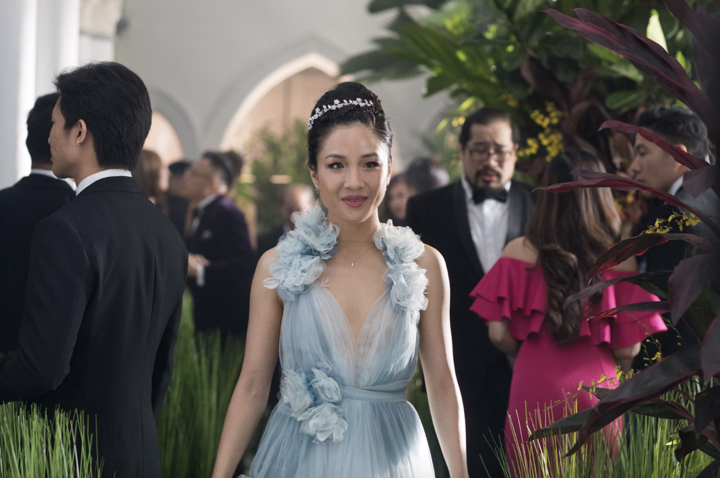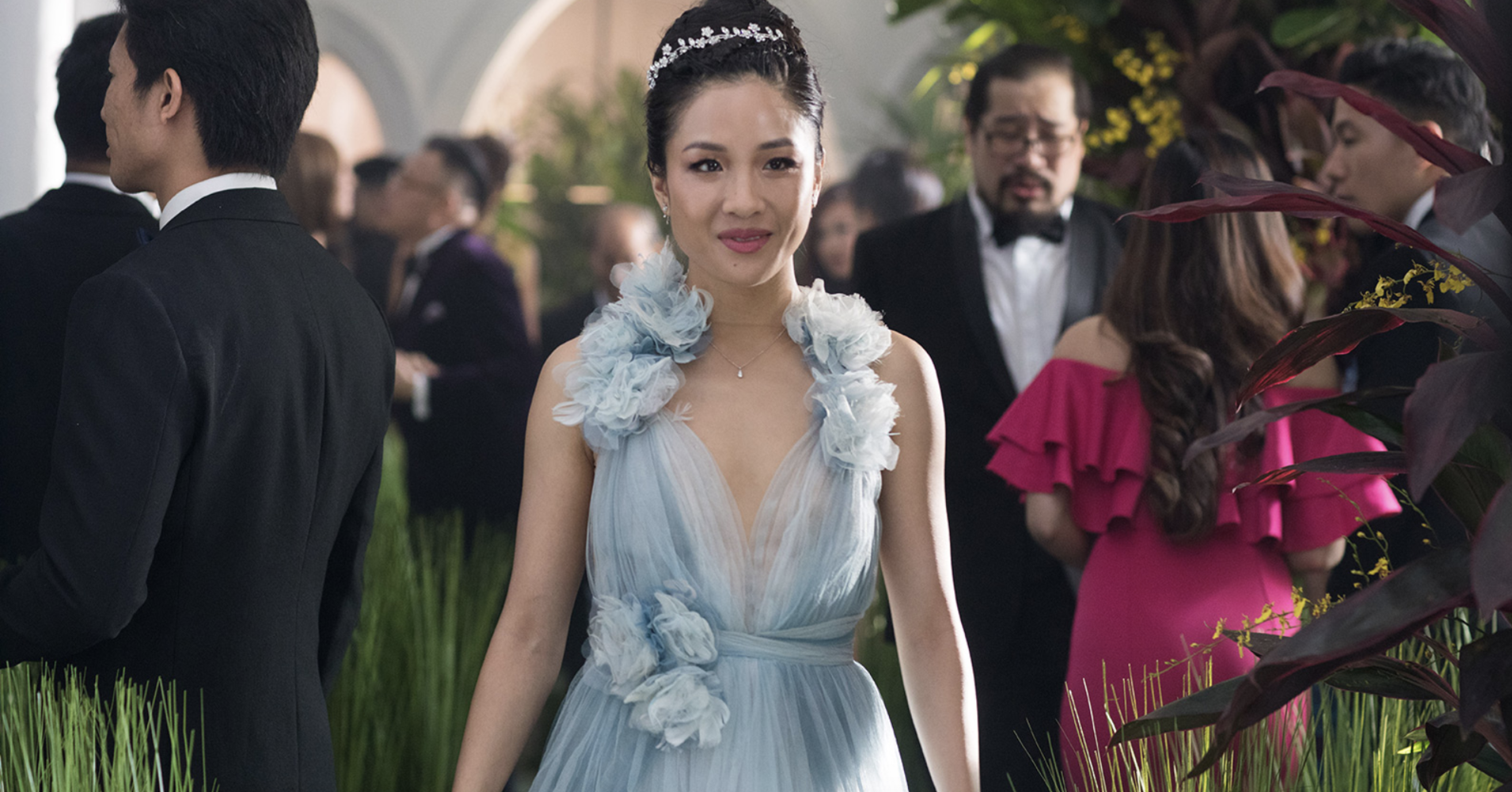[ad_1]
For years, producers and studios have suggested that movies that revolve around people of color just don’t drive moviegoers.
Take Ridley Scott ― criticized for casting white stars in “Exodus: Gods and Kings” ― who responded that he “can’t mount a film of this budget, where I have to rely on tax rebates in Spain, and say that my lead actor is Mohammad so-and-so from such-and-such.”
Or “21” producer Dana Brunetti, who expressed that he “would have loved to cast Asians in the lead roles, but the truth is, we didn’t have access to any bankable Asian-American actors that we wanted.”
Or Aaron Sorkin, whose leaked 2014 email to then-Sony co-chair Amy Pascal questioned whether the studio would make a film about Wall Street executive Bradley Katsuyama because “the protagonist is Asian-American (actually Asian-Canadian) and there aren’t any Asian movie stars.”
Even “Crazy Rich Asians” author Kevin Kwan faced pressure to whitewash his story when it was translated to the big screen. “They wanted to change the heroine into a white girl,” Kwan told Entertainment Weekly. “I was like, ‘Well, you’ve missed the point completely.’ I said, ‘No, thank you.’”
Kwan’s “no thank you” spawned a sweeping summer hit. “Crazy Rich Asians,” the first Hollywood studio film with an all-Asian cast in 25 years, brought in $25.2 million dollars at the box office in its first weekend and $34 million over five days. It currently stands as the No. 1 movie in North American theaters.
And while “Crazy Rich Asians” is, first and foremost, by, for and about Asians, white people should see it, too (and many have).

Warner Bros
“Crazy Rich Asians” is the best of what romantic comedies should be. It centers around Rachel Chu (Constance Wu), a beautiful economics professor from New York who is dating Nick Young (Henry Golding), an equally beautiful professor with a sexy British accent. The setup is familiar: Nick, unbeknownst to his girlfriend of more than a year, comes from a long line of incredible familial wealth. But Rachel only finds out about this when she ventures to Nick’s family home in Singapore to attend his (also beautiful) best friend’s wedding. Chaos ensues. The story is sweet and funny, prompting all the right warm and fuzzy feelings.
Plus, it doesn’t hurt that the movie is based on a best-selling novel that makes you want to go on vacation immediately ― or, at the very least, one day attain escape via a first-class cabin. It features gorgeous landscapes! And gorgeous food! And gorgeous costumes! And gorgeous humans! And those landscapes and foods and humans all happen to be (well, very deliberately) Asian.
“Crazy Rich Asians” is now the biggest rom-com hit in three years. Take that, Hollywood.
Since the undeniable success of movies like “Get Out,” “Black Panther” and “Girls Trip,” the entertainment industry has been forced to recognize that studio projects centered around people of color not only drive moviegoers of color to the theater ― they bring in white audiences, too. Thirty-nine percent of the people who went to see “Crazy Rich Asians” in its opening weekend identify as Caucasian.
Turns out that being white does not preclude someone from connecting with and loving a story about people who do not look like them ― something that people of color have always had to do at the multiplex.
In fact, as a white person accustomed to being the catered-to audience, I find that there is something profound in learning to immerse yourself in someone else’s story. Watching movies about people who do not look like you or speak like you or have the same narrative as you teaches empathy and imagination. As academic Jenny J. Lee told Deadline, “As much as we may want to dismiss TV [and movies] as simple entertainment, it undeniably contributes to our cultural landscape and our understanding of the world.”
“Crazy Rich Asians” understands this. It keeps the rom-com tropes we know and love and shunts many of the worst stereotypes that have dogged Asian actors on screen. White people should be able to see Asian characters as more than the villain, the foreigner, the exoticized and hyper-sexualized woman, the laughable and asexual man.

Warner Bros
So, Hollywood, take a cue from all this success, and (continue to) get it together. “Crazy Rich Asians” is, again, the first Hollywood film in 25 years that puts an Asian-American story at its center; meanwhile, I see stories revolving around people who look like me on a near-daily basis.
As a white lady, my interests are already prioritized by movie studios (though not as much as white dudes! I see you, bros!). I’m here to say that I’d like to see fewer of those stories. Forgo the next lackluster thriller/superhero movie/Wall Street redemption arc about a white dude, and lean into the stories written by, about and for people who haven’t dominated American movie theaters since American movie theaters first opened.
And if they could all include a role for Awkwafina, that would be even better.
[ad_2]
Source link

